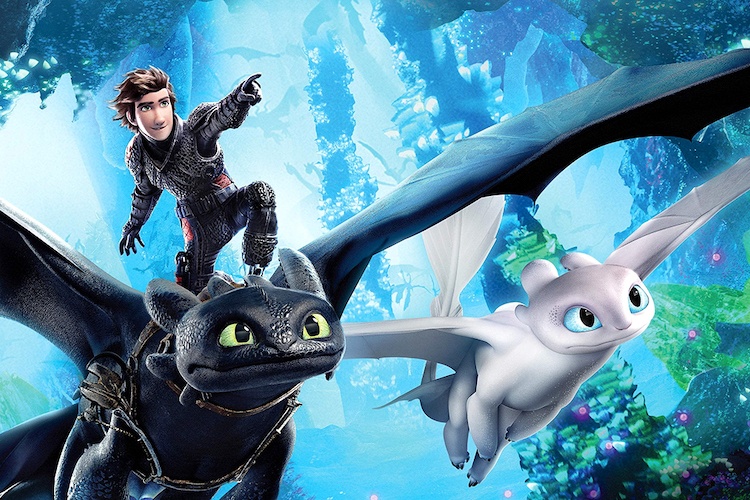I loved the first two animated adventures about the Viking boy and his fire-breathing friend, but How to Train Your Dragon: The Hidden World falls a bit flat. Maybe too much time has passed? It’s been five years since Part 2, nine years since the first one, and as much as I enjoyed them, I never felt compelled to watch them again. When The Hidden World began — with Hiccup (Jay Baruchel) and friends rescuing dragons from trappers — I recognized all the characters but didn’t feel anything for them. That turned out to be a problem because the film assumes we’re already all-in on these folks — which, to be fair, is a safe assumption. The target audience has probably re-watched both films multiple times. I understand that I’m the problem here.
Written and directed by franchise veteran Dean DeBlois, The Hidden World is aesthetically as beautiful as ever, with melancholy themes reminiscent of Toy Story 3. Hiccup, chief of the village since his father died, is growing up and being urged to marry Astrid (America Ferrera). He has turned the island of Berk into a “dragon-Viking utopia,” but they’re running out of room for everyone because dragons are large. Complicating matters: Some rival Vikings who aren’t down with the “be nice to dragons” philosophy have hired a dragon hunter, Grimmel (F. Murray Abraham by way of Bela Lugosi), to capture Toothless so they can use him as bait for the rest. And what bait do they use to catch Toothless? A female Night Fury, white in color and as feline in her mannerisms as Toothless is canine. Toothless is smitten. Seems Hiccup isn’t the only one approaching adolescence.
John Powell’s soaring musical score is a great boon, especially during the wordless scenes of Toothless and New Girl courting and cavorting. (They have a romantic flying scene that reminded me of its equivalent in the first Superman movie.) Thanks to dreams and flashbacks, Hiccup’s connection to his father (Gerard Butler) is still a driving force in the story, but his long-lost mother (Cate Blanchett), introduced in Part 2, might as well have remained lost. This chapter, about growing up and moving on, has heart but lacks the warmth and comfort of its predecessors. The two 6-year-olds who sat near me loved it, though, so who cares what I think? ![]()



